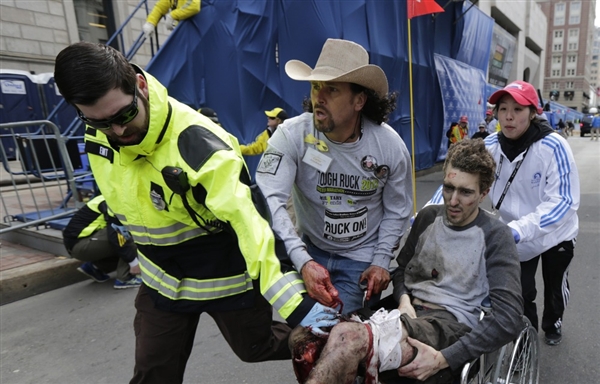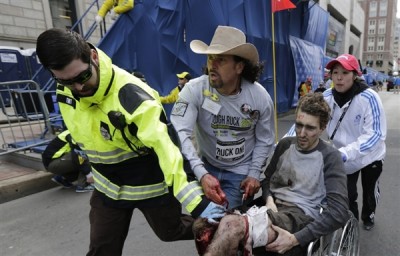There’s not much that can be said about the Boston Marathon attacks that hasn’t already been said. And there’s not much that qualifies me to say anything about it. But I’m a writer by nature, and I feel driven to write about things that affect me deeply; this attack affected me deeply.
I was on my commuter train home when the attacks happened, and I spent the whole ride following everything that was happening—or, rather, all the speculation about what was happening. I also spent the whole train fighting back tears, as I saw tweets with terrifying pictures, read tweets with powerfully touching stories, and felt the shaky fear and deep sympathy that so many of us felt as the story unfolded. I was on the verge of sobbing for hours after, and whenever I read another story. The horror, the massacre, and the extraordinary fear that comes from mass confusion overwhelmed me. In fact, as I write this piece I am again on the verge of tears.
But what struck me later that night, as I was lying in bed and reading more articles on the attack, was not the evil that this attack revealed in humanity, though there was certainly an element of that. What struck me, instead, was the exact opposite. The problem is, the antonym of evil is good, and what took place at the Boston Marathon goes beyond good. It was pure generosity of spirit, love for strangers, concern for others above one’s self. It was the total selflessness of so many in the aftermath of such terror.
The pain and horror of what took place on Monday is not to be trivialized. But in the face of such horror, and despite the fact that the people involved had no idea what was going on, so many turned to helping others. There’s the story of runners crossing the finish line and continuing straight on to General Mass Hospital to donate blood. There’s the thousands of calls for blood, and the word soon after from the hospital that they got so many donations that they were in fact full. There were the Bostonians who offered their homes, their couches, their extra rooms to victims and their families. The man whose organization offered to pay for flights for victims’ families to fly in to Boston. The stories of so many who jumped into the fray and started lifting victims off the street, applying tourniquets, and calming those who were in shock. There were, of course, the first responders, who ran into the smoke to save lives. The almost-immediate organization of websites who helped people locate their loved ones. Even the New York Yankees, who hung a banner saying “United We Stand,” with their logo alongside their arch-rival team’s, the Boston Red Sox.
When I walked home from the train that day, I felt connected to those around me. I felt an unusual love for people. Because I was reminded that there is a reason to love strangers. When tragedy strikes, when it’s caused by another human, it’s easy to forget the good in people. Good acts are so much quieter—they are the strangers who go around giving juice to runners, the restaurants that open their doors, people who mourn for those they never met—but they are so much more important, and so much more prevailing. One person caused the terror. Thousands ran in to counter that terror with the simple good of humanity.


